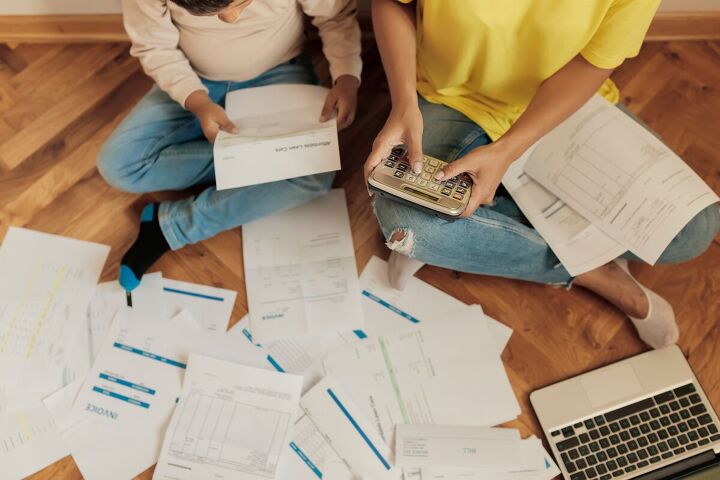Should You Take Suze Orman's Advice on Finances?

We are reviewing Suze Orman's advice for the top 26 ways to save yourself from a financial disaster. I found this article by Gabrielle Olya. I thought it would be helpful to go over Suze Orman's advice to see which advice I'm already using I'm using and which I'm ignoring.
1. Live within your needs but below your means
You still need to live somewhere and eat, but evaluate those things and see if you can lower those expenses.
2. Don't lease a car; buy a car
Our cars are owned outright, and we're just trying to fix them and make them last as long as possible.
3. Stop paying extra for minor inconveniences
Suze Orman wants to encourage people not to buy takeout and cook at home. I don't know about the inconvenience, but it saves you money.
4. Cut your coffee habit
Cutting out your $3 or $4 a day coffee habit will not magically fix all your finances. This is kind of a statement for cutting out the luxuries in your life or the excuses people make about not having money to invest.
5. Pay with debit instead of credit whenever possible
If you carry a balance and pay 15% interest, the interest rates on credit cards are obnoxious, so definitely avoid that interest at all costs.
6. Pay your student loans on time
I think it's great to make a habit of paying all your bills on time because it can hurt your credit and ability to take out loans or buy a house later.
7. Get out of debt ASAP
I am all for this. Dave Ramsey is a great resource to help you get serious about paying off your consumer debt.
8. Set up automatic deposits into your savings account
The idea is to help you stay consistent with your savings goal. I think that automatic transfer cuts down on the amount of thinking you must do when considering savings.
9. Have eight months of expenses saved in an emergency fund
I love emergency funds. I think they save us from so much disaster. You need enough for your situation.
10. Follow your instincts
Listen to your gut. When your gut is telling you that this is a bad decision, this can be super useful because every financial choice you make will be different from the financial choices other people have to make.
11. Never co-sign a loan
This can get you into so much trouble because it can hurt your credit, and then before you know it, you are on the hook for someone else's debt.
12. Don't rush into buying a home
Sometimes, people can get caught up in the American dream of buying and owning a home and that it will just be so great. Sometimes it doesn't make sense to own a home.
13. If you're new to investing, go with a low-risk option
If you're new to investing, start with something that you're comfortable with and something that's diversified, like an index fund or mutual fund or something, so that it's not too scary.
14. Be patient when it comes to long-term investing
As you go along, you'll learn more things and decide different things. When it comes to long-term investing, this can be hard when the market is just up and down every single day. '
15. Don't underestimate how long you may live in retirement
If you outlive your retirement plans, suddenly, your money runs out, and you're in big trouble.
16. Lower the fees on your investment funds
Look for funds that have low expense ratios. Keep that in mind as you're investing because, over time, this money can add up.
17. Rollover your 401Ks
401Ks do not just follow you automatically. Make sure you roll over your 401Ks into your new plan.
18. Choose your 401Ks cheapest options
Saving on fees this way could save you a lot of money in the long term.
19. Use a financial advisor, but be careful to vet them first
The kind Suze Orman recommends is a fiduciary one, which means you pay them for their time, and they don't make money off any of the financial products they sell.
20. Get healthy
Her reason for this is that taking prescription drugs can be costly, and it really adds up. My reason for staying healthy would be to enjoy my retirement and my whole life.
21. Prioritize retirement funds before college funds
I think this is an excellent point because if my husband and I can't take care of ourselves, it doesn't matter if we can help our children with college; they're going to have to start helping us and start taking care of us, maybe while they're still in college.
22. Pay off all your debts before you retire
This is a no-brainer because paying off your debts frees up so much money for me. I also want to think about the emotional benefit of not being in debt and enjoying your retirement.
23. Delay collecting Social Security benefits until you're after 70
You are allowing your Roth IRA or 401K to get as big as possible before you start making withdrawals. So you're trying to avoid it until the last minute.
24. Don't take out a reverse mortgage in your 60s
Suze doesn't want a reverse mortgage to be part of your retirement plan because you can get in trouble with a reverse mortgage. A reverse mortgage can backfire pretty fast if you have many years left. You will have all that principal, which is not paid off.
25. Make sure you have these four documents for estate planning
The documents she thinks you should have are:
- A will.
- A revocable trust.
- Financial power of attorney.
- A durable power of attorney for health care.
26. It doesn't matter how much money you make
You can still be smart with your money. If you're making $50,000 and spending $40,000, you can make headway on your financial goals, debt payoff, down payment plans, retirement goals, whatever they are, and you can make progress on that. If you're making $300,000 and blow $300,000, you can get into serious trouble real fast.
Suze Orman's advice
Find the things that work best for you. Suze Orman's advice is a great resource. Let us know in the comments which one of these financial tips is most important for you right now in your life phase.






















Comments
Join the conversation
I still have your Protection Portfolio ( 2002) Are the documents still applicable ?